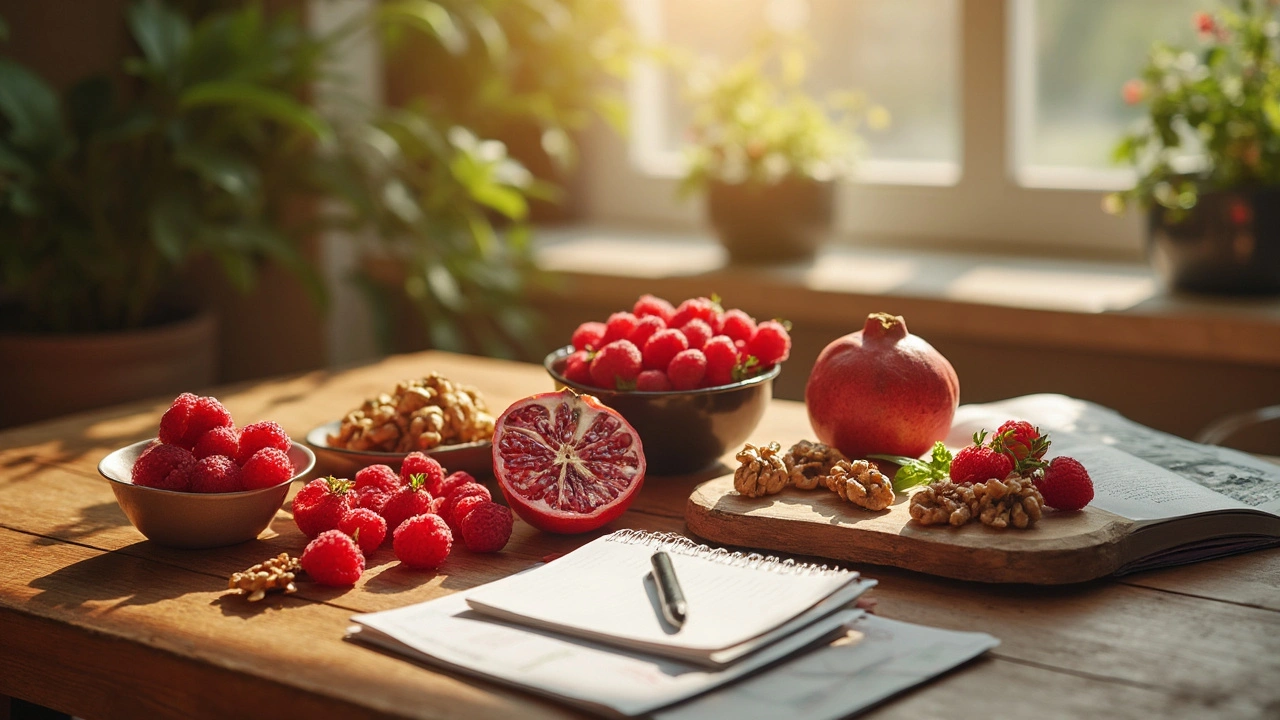
Ever wonder why you keep hearing about antioxidants in headlines about superfoods and anti‑aging? In plain terms, antioxidants are molecules that neutralize free radicals – unstable particles that can damage cells, speed up aging, and raise disease risk. Think of them as tiny bodyguards that keep the chaos in check.
Free radicals form naturally when you breathe, exercise, or eat certain foods. Pollution, smoking, stress, and a diet low in fresh produce add extra pressure. When the balance tips toward more free radicals than antioxidants, oxidative stress kicks in, and that’s when you might notice tired skin, slower recovery, or higher inflammation.
The easiest way to boost your antioxidant shield is by loading up on colorful fruits and veggies. Berries (blueberries, strawberries, raspberries) pack high levels of anthocyanins, while dark leafy greens like spinach and kale deliver vitamin C and lutein. Nuts and seeds, especially almonds and sunflower seeds, give you vitamin E, another powerful defender.
Don’t forget about spices. Turmeric’s curcumin, cinnamon, and oregano are antioxidant powerhouses that you can sprinkle onto meals. Even beverages count – green tea, black tea, and coffee each contain catechins and chlorogenic acids that help neutralize free radicals.
Supplements can fill gaps, but they’re not a free pass to skip real food. A balanced diet usually provides enough antioxidants for most people. If you’re an athlete, senior, or have a specific deficiency, a daily vitamin C or vitamin E supplement might help, but keep the dose within recommended limits (usually 500 mg for vitamin C, 15 mg for vitamin E).
Watch out for mega‑doses. Research shows that extremely high antioxidant supplement levels can sometimes interfere with the body’s natural adaptation to exercise or even increase certain health risks. When in doubt, talk to a pharmacist or your doctor before adding a new pill.
Here are quick tips to make the most of antioxidants:
Remember, antioxidants work best as part of an overall healthy lifestyle. Regular exercise, adequate sleep, and stress management all reduce the load of free radicals, letting your body’s natural defenses stay strong.
If you’re curious about specific antioxidant supplements like coenzyme Q10, resveratrol, or plant extracts, check reputable sources and read user reviews. Many online pharmacies list these products, but always verify licensing and safety, especially if you’re ordering from abroad.
Bottom line: focus on whole foods first, add supplements only if needed, and keep habits that lower oxidative stress. Your body will thank you with clearer skin, better energy, and a lower long‑term disease risk.